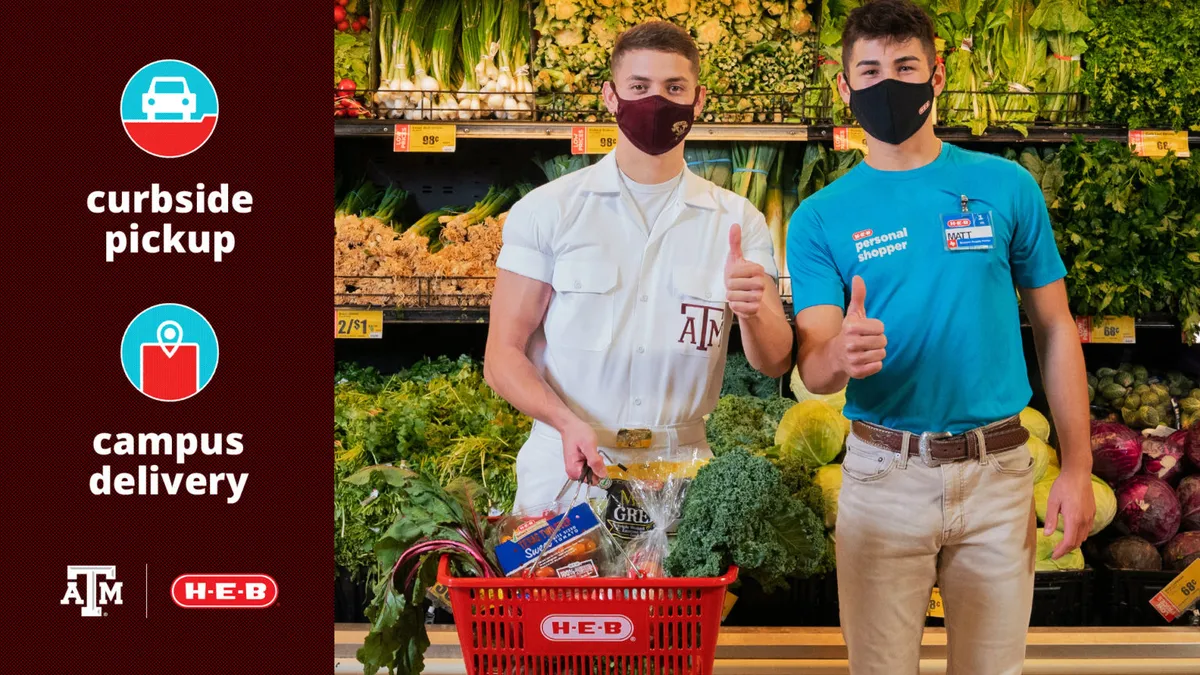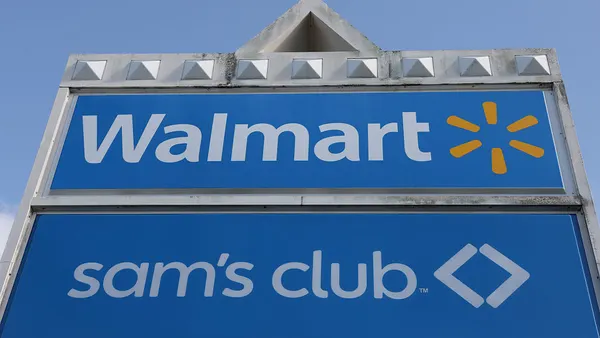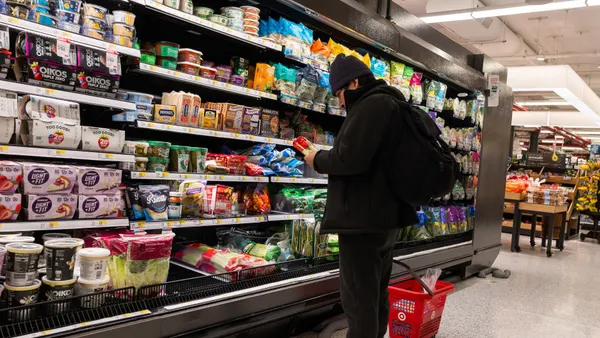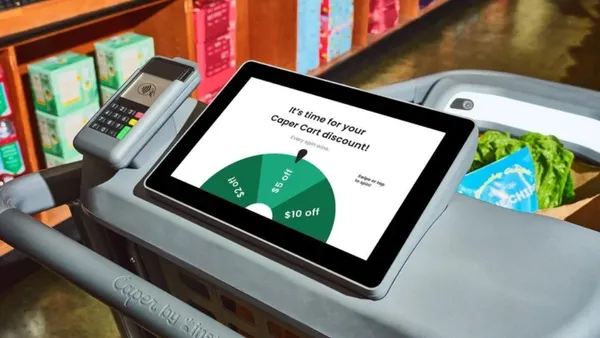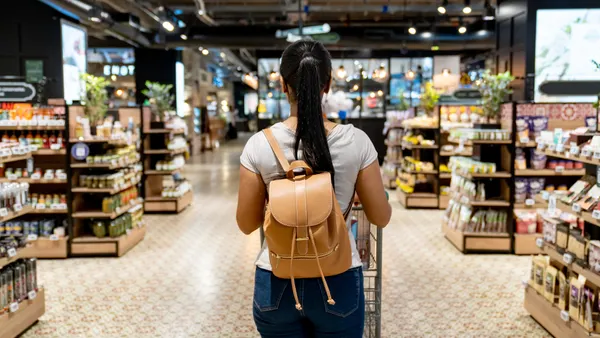Dive Brief:
- H-E-B is partnering with Texas A&M University to provide grocery delivery to people who live on its main and West campuses in College Station, Texas, according to an article posted Wednesday on the university's website.
- Under the Campus+ program, customers at the university can receive grocery orders at eight dedicated delivery zones for a $5 fee. Curbside pickup orders are free.
- H-E-B's grocery-delivery arrangement with Texas A&M builds on a longstanding relationship that includes the supermarket chain's sponsorship of the university's football team.
Dive Insight:
The announcement that H-E-B is providing delivery service to customers at Texas A&M follows the grocer's decision to open stores in the Dallas-Fort Worth area under its flagship brand next year after years of operating in the market under its Central Market banner.
The Campus+ service is available to students, faculty and staff on the public university's main and West campuses in College Station, which is about 175 miles northeast of San Antonio, where H-E-B is headquartered.
The university's post about the on-campus delivery option underscores the grocer's roots in the state, along with its response in Texas to challenges like the coronavirus pandemic and destructive weather.
Other grocers have also built connections with college communities. In 2018, Publix opened a location on the campus of the University of South Florida, in Tampa, Florida. The chain hired several dozen USF students to work at the 28,000-square-foot supermarket, which sits on land Publix leased from the university. Also that year, Kroger struck a deal to open an innovation lab at the University of Cincinnati, which is located in the grocer's hometown.
Standard Cognition, a company that provides autonomous checkout systems to retailers, rolled out one of the first commercial deployments of its technology at a convenience store at the University of Houston in October.
In January, delivery robot startup Starship Technologies said it was expanding its fleet to the University of California-Los Angeles and Bridgewater State University in Massachusetts. Two years earlier, the company brought its driverless vehicles to Virginia's George Mason University — its first such project on a college campus.



